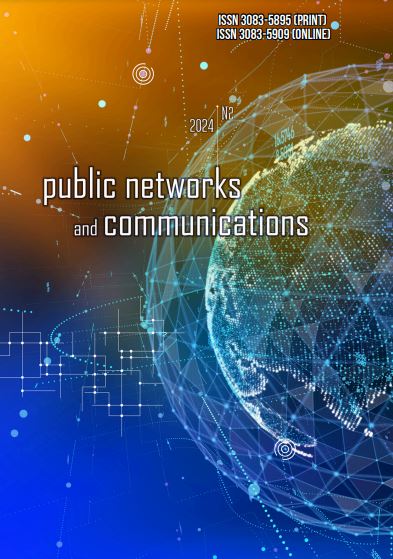Information and communication technologies in public policy
DOI:
https://doi.org/10.31558/3083-5895.2024.2.1Keywords:
information and communication technologies, network and communication space, modern information and communication technologies, electronic, political and legal regulation, public sphereAbstract
The article examines the impact of interactive information and communication technologies (ICTs) on the evolution of the role of public institutions and on the change in the formats of interaction between civil society and the state. The active involvement of ICTs in the political process transforms not only traditional forms of governance, but also opens up new opportunities for engaging citizens in public affairs, strengthening their participation in decision-making and management processes. Innovative communication tools, such as social media, online platforms for consultations and public discussions, are changing the way citizens interact with public structures, promoting horizontal forms of communication and creating space for a more equal dialogue. It is noted that the modern communicative environment of the public sphere is spreading in the online space, which is gradually turning into a new platform for political interaction of actors, expanding the scope of citizens' participation in public policy making. The article analyses how digital platforms can become a tool for feedback between the government and society, providing citizens with the opportunity to influence the political process in real time. Particular attention is paid to horizontal forms of interaction, which involve building more transparent and open relations between public actors and society, which contributes to increasing trust in institutions and democratisation of public administration. The article emphasises that the growing popularity of interactive ICTs in management practices stimulates the transformation of traditional institutions and contributes to the formation of new forms of democracy, where citizens play an active role and the state becomes more transparent and accountable, turning into a moderator of public processes. The author concludes that further research on digital formats of public participation in political processes, their impact on the efficiency of public administration, emergence of the system and stability of democratic institutions is needed. The article offers prospects for studying digital tools as a means of improving public policy and supporting effective interaction between the state and civil society in the new information reality.
References
Castells, Manuel. The Rise of the Network Society. Malden: Wiley-Blackwell, 1996
Castells, Manuel. Communication Power. Oxford: Oxford University Press, 2009
Habermas, Jürgen. The Structural Transformation of the Public Sphere: An Inquiry into a Category of Bourgeois Society. Cambridge: Polity Press, 1989.
Habermas, Jürgen. The Theory of Communicative Action. Vol. 1: Reason and the Rationalization of Society. Boston: Beacon Press, 1984.
Shannon, Claude, and Warren Weaver. The Mathematical Theory of Communication. Urbana: University of Illinois Press, 1949.
Lasswell, Harold D. Propaganda Technique in the World War. New York: Peter Smith, 1927.
Lasswell, Harold D. The Structure and Function of Communication in Society. In Lyman Bryson (Ed.), The Communication of Ideas. New York: Harper & Brothers, 1948.
Luhmann, Niklas. Social Systems. Stanford: Stanford University Press, 1995
Luhmann, Niklas. The Reality of the Mass Media. Stanford: Stanford University Press, 2000.
Jakobson, Roman. Language in Literature. Cambridge: Harvard University Press, 1987.
Jakobson, Roman. Essays on General Linguistics. The Hague: Mouton, 1971
McLuhan, Marshall. Understanding Media: The Extensions of Man. New York: McGraw-Hill, 1964
McLuhan, Marshall. The Gutenberg Galaxy: The Making of Typographic Man. Toronto: University of Toronto Press, 1962.
Dunleavy, P., Margetts, H. Digital Era Governance: IT Corporations, the State, and E-Government. Oxford: Oxford University Press, 2006. 336 p.
Чальцева, О.М. Публічна політика: теоретичний вимір і сучасна практика. Монографія. Вінниця. 2017. 336 с.
Abramson J. B., Arterton F. C., Orren G. R. The Electronic Commonwealth. N. Y.: Basic Books, 1988. Р. 185-212.
Центр нових медіа та залучення громадян США. URL: http: // www.howto.gov.

